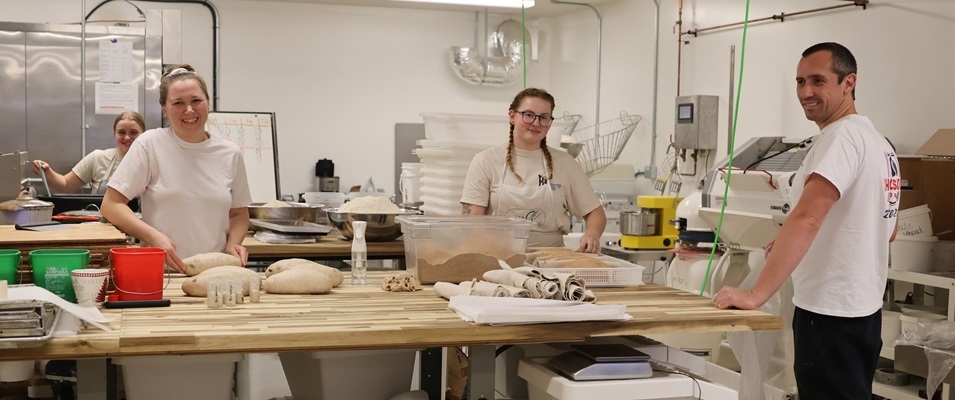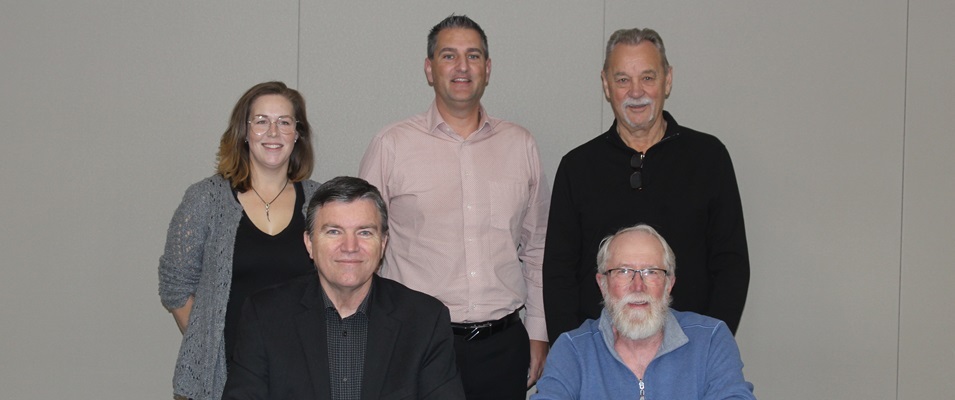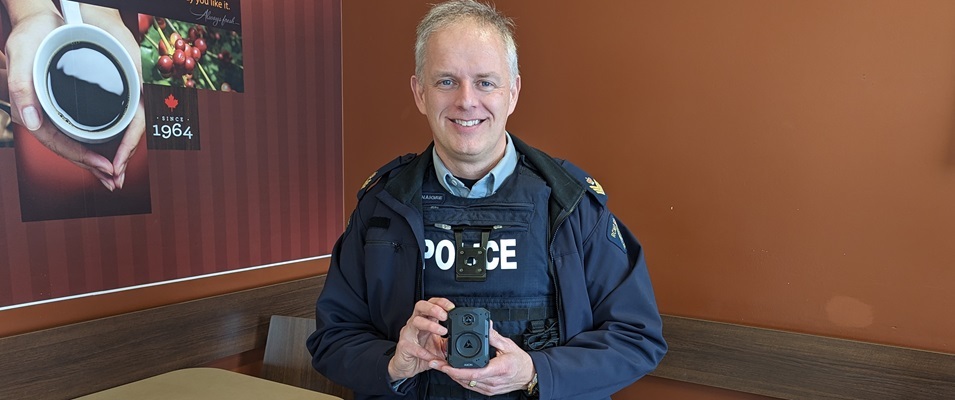
Autism Spectrum Disorder (ASD), or simply autism, is not a new phenomenon, but it remains poorly understood by most. That’s true even for many parents who are raising autistic children.
Understanding their child’s needs, getting a firm medical diagnosis, and accessing resources to help them raise their child in a meaningful way is anything but simple, especially for families living win the Southern Health-Santé Sud (SHSS) region.
In fairness, autism can present with a diverse range of neurological symptoms that make firm diagnoses difficult to reach. Autism can affect the way a child behaves, communicates, interacts with others, and learns.
Complicating a diagnosis further is the fact that autism is a spectrum disorder, meaning that the range and degree of developmental concerns can be vastly different from one child to the next.
For example, people with autism can demonstrate extremely advanced communication skills or, on the other hand, be rendered completely nonverbal. Some require a lot of help with day-to-day functions while others manage quite well independently.
According to the Autistic Self Advocacy Network (ASAN), there are some truisms for most autistic people, though.
For the most part, they think in ways that are different than other kids. Routine is highly important in their lives. They often experience an oversensitivity to stimulants such as light, sound, or smell.
They can become easily overwhelmed, but as they develop they may discover mechanisms called “stimming” which help them regulate their emotions. Stimming might manifest as rocking back and forth, playing with their hands, or humming. There are a host of other calming and self-regulating techniques.
Socializing and interacting with others can prove difficult, especially when they’re thrust into a world with social constructs that cater to the non-autistic.
“Autism is a developmental disability that affects how we experience the world around us,” the ASAN website states. “Autistic people are an important part of the world… Autism has always existed. Autistic people are born autistic and we will be autistic our whole lives… Because of myths about autism, it can be harder for autistic adults, autistic girls, and autistic people of color to get a diagnosis. But anyone can be autistic, regardless of race, gender, or age.”1
How Prevalent Is Autism Today?
The Center for Disease Control and Prevention (CDC) funds a program called the Autism and Developmental Disabilities Monitoring (ADDM) Network. Through their 11 ADDM sites set up around the United States, the CDC has been able to derive some interesting statistics about autism by tracking children between the ages of four and 16.
According to their data, about one in every 36 children in America was detected as having autism in 2020. This is up from one in 150 in 2002.
About one in six children in the U.S. have been diagnosed with one form of developmental impairment or another. These include autism, attention-deficit/hyperactivity disorder (ADHD), and cerebral palsy, among others.
According to the CDC, evaluation for autism decreased dramatically during the COVID-19 pandemic, causing significant delays in early testing and treatment.
Delayed testing means delayed access for parents to the much-needed supports, resources, and services they need to raise a healthy, happy child.
The Challenge of Finding Supports
The Citizen interviewed seven parents living in different parts of the SHSS region. Each of them has a child who struggles with a variety of developmental and/or behavioural issues that make life challenging for the child and the family.
Most, if not all, of these parents have left full-time jobs in order to spend their days advocating on their child’s behalf. All will tell you that their advocacy has been a full-time job.
Some bring in a part-time income, when possible, to try covering the many additional costs they incur while raising a child with challenges. These might include paid therapy for the child or, better still, the whole family. It may mean purchasing items that calm the child, such as weighted blankets or a trained therapy pet.
In some cases, it means investing in specialized aids such as glasses that reduce the glare of overstimulating lights. The parent of a non-challenged child would never dream of needing something like this.
Another thing each of these parents has in common is the struggle just to get a diagnosis through the SHSS. It’s a hamster wheel, they say. Once you get on, you’re always in motion, but you never get anywhere.
To make matters worse, they have been turned away from provincially funded clinics in other health regions that have the resources to help. The reason? They are restricted to services provided by the SHHS.
Only by getting a diagnosis, though, do the doors begin to open for families in terms of professional help and child disability tax credits to ease some of the financial burden.
All of the parents quoted here have been given pseudonyms so that, as one mom put it, speaking out won’t jeopardize any headway they’re making in getting support through the SHSS.
Sandy
Sandy lives with her family in St. Adolphe. She has two sons, the youngest of which is 12. She and her husband had concerns over their son’s development from early on.
“At a really young age we saw signs of depression,” Sandy says. “He had a really hard time handling his emotions… Everything just felt harder for him than it needed to be. He had lots of issues with transitions and change.”
Eventually, his behaviour developed into uncontrollable rage. At around six years of age, Sandy was referred to a child therapist through the SHSS who simply told her that proper discipline was all that was needed.
Through seeking a paid counsellor, the parents discovered that childhood aggression is often a response to anxiety. Their son was demonstrating the fight part of the fight-or-flight response. The alternative response which others may experience—flight—can result in depression and bouts of crying.
The family continued to seek help through local paediatricians. Some of the paediatricians sought advice from psychiatric professionals who assess and prescribe drugs to a child client without ever seeing the child firsthand. Nothing helped.
Four years later, their son’s behaviour was escalating out of control. This time the paediatrician gave them a referral to the Manitoba Adolescent Treatment Centre (MATC). MATC, operating under the Winnipeg Regional Health Authority (WRHA), provides some of Manitoba’s top services and psychiatric professionals in the field of childhood mental health disorders.
Sandy called to make her appointment, only to be let down once again.
“Our referral was denied because we live outside of Winnipeg,” she says. “So then [our paediatrician] referred us to Southern Health to have a psychiatric assessment. We waited [on their wait list] for almost a year.”
By this time, Sandy’s son had become violent, putting the entire family at risk. Sending him to school was no longer an option.
“We were told that our best resource at this point was to pack him up and take him to the Health Sciences Centre ER and just throw up our hands and say, ‘We need help.’”
Stressed and utterly defeated, that’s exactly what they did. Even so, she said, they had to beg and plead at HSC for a rapid assessment on their son so they could get help before he hurt somebody.
He was diagnosed with anxiety and ADHD, but the in-house psychiatrist that day was unable to make a firm autism diagnosis in just one appointment, which is all they were granted.
“We got that assessment and said, ‘Great! We can share this with Southern Health and say, “Hey, look, she’s done part of your job.” We know the next step is an autism assessment,’” Sandy said. “And then I was told that Southern Health doesn’t do autism assessments… They gave me a list of private places that I could go where you’re looking to spend $2,000 to $5,000 just to get your child assessed.”
Months and many phone calls later, Sandy found advocacy support through a Winnipeg-based non-profit called Inspire Community Outreach. With the additional pressure, Sandy’s son was accepted into MATC’s Intensive Community Re-Integration Services (ICRS) program located at the Health Sciences Centre.
“It’s basically a mini school [for children like my son],” she says. “There’s only about ten kids there… It’s taught by teachers who have extra mental health training so they can really watch a kid to know which medication is working or whether they need to tweak it because they see it all the time and they know what they’re looking for.”
Psychiatrists, psychologists, and occupational therapists are on staff every day. After six months at the ICRS, her son was demonstrating such a marked improvement that he was being transitioned back to regular school along with what Sandy calls a “user manual” to instruct teachers and school admin on how to accommodate his special needs.
“[My son] now knows all of the things that he needs as well so we’re now seeing him advocating for himself.”
Sandy says that requiring parents to go through such an intense degree of advocacy, energy, determination, and sacrifice is simply absurd. If services weren’t available, she says, that would be one thing. But when they are available to some families in Manitoba and not others, that’s a problem that needs to be fixed.
Sandy’s son is now making daily strides in the right direction. The trauma that it took to get him there, though, means the whole family is in therapy, at their own expense.
Dana
Dana is another mom from St. Adolphe. She’s been fighting to get a diagnosis for her 11-year-old daughter for about as long as Sandy has. After years of fighting the system, she finally got a diagnosis and her suspicions were confirmed: her daughter is autistic.
“We had to go to a child health advocate just to get Southern Health and MATC to actually see our daughter,” says Dana. “To get the autism diagnosis, I had to pay out of pocket because Southern Health wouldn’t give us one.”
It’s a diagnosis, she says, that any Winnipeg family would have gotten for free.
“I know of a couple of families just in St. Adolphe that are going through the exact same thing where they’re having to pay out of pocket. Or, if they don’t have the money, their kids are just suffering because they don’t have access to services.”
Prior to 2020, Dana’s daughter struggled in ways that so many autistic children do. But she was able to attend school.
During the pandemic, however, her daughter was afflicted with such severe anxiety that the slightest triggers threw her into severe panic attacks. Soon her fears got the better of her and she couldn’t leave the house.
Dana is now at home full-time with her daughter, trying to provide home-schooling under these difficult circumstances. The Seine River School Division, she says, has told her there’s nothing they can do if her daughter can’t physically attend classes.
“[If we lived] in the city, they would actually provide us with someone that would come to our home and form a relationship with her and slowly help get her back to school,” says Dana. “But because we live ten minutes outside of the city, there are no resources for that.”
When she isn’t home-schooling, Dana is on the phone advocating for her daughter. Thanks to an advocacy organization that she found, a local psychiatrist is now fighting to get her some help through the services provided by MATC.
“He did say it may not happen because of so much bureaucratic red tape,” says Dana. “If they won’t see her, we don’t know what the next steps would be. There’s really no one else [in the public system]. It will likely cost us a fortune through the private system.”
Lindsay
Lindsay is yet another St. Adolphe mom with a son whose mental health struggles began around the time he started Kindergarten. The situation has progressed to the point where, at ten years of age, he’s beginning to self-harm.
For years, she too has fought to have her son diagnosed so that he can receive treatment to ease his depression. Unfortunately, the paediatrician who saw her son referred him for psychiatric assessment but indicated on the boy’s chart that autism may play a factor.
Lindsay doesn’t believe her son is autistic. But because of that footnote on the file, the psychiatrist declined to see her son and she’s been unsuccessful in accessing any treatment in the SSHS.
“It seems like as soon as you say the A-word they want nothing to do with you,” Lindsay says. “At one point we just threw our hands up and said, ‘We’re just going to have to figure this out on our own.’”
Then the pandemic struck. Along with debilitating depression, her son developed certain ticks and could no longer deal with the idea of attending school.
Luckily, she happened upon a program offering free therapy for children struggling with reintegration to school due to anxiety. It was a short-term program provided by the government through an organization called Kid Think.
“It was the most amazing thing at the best possible time,” says Lindsay.
Just one therapeutic evaluation, she adds, resulted in a prescription for medication that is helping her son. Unfortunately, the program ended after a couple of sessions and the family was expected to pay out of pocket for ongoing therapy.
“It was just such a struggle to get that far. All my son wanted was someone to talk to. At some point you just feel defeated as a parent. I’m now worried about my own mental health.”
Hailey
Hailey is a Niverville mom with a 13-year-old son who was diagnosed with autism at the age of three. At the time, she and her husband lived in the U.S. She’s thankful they received the diagnosis before moving into the SHSS region.
Another factor that plays to Hailey’s advantage is that her husband is also autistic, giving the couple some knowledge of what they were in for when their child was diagnosed.
To better understand autistic people, she relates their brains to computer systems.
“Autism is not a processing error,” she says. “It’s just a different operating system.”
For Hailey, she knew her child was different within days of his birth. Primarily, he didn’t sleep. At times she found herself in the local emergency department seeking help, unravelling because her newborn had gone 26 hours without sleep.
As he matured, he was mostly mute. Thankfully, with access to quality speech therapy, he began building on his vocabulary—until, just weeks in, he exploded into full intellectual sentences. Hailey says it was the therapist who recommended that they quit the therapy, as the boy’s vocabulary quickly rose well above average for children his age.
Interestingly, the ability to verbalize his thoughts put an end to his regular outbursts. As a young teen, he now demonstrates a level of brilliance in a number of areas.
“My son could tell you the gross domestic product of virtually every country in the world, [not to mention] their capital city and their population density,” Hailey says. “I think when you have a special interest that powerful, you absorb everything. If I watched a video that included the gross domestic product of ten countries, I wouldn’t remember a single one of them when I was done. But he’ll remember them all, forever.”
He's also a math genius, she says, but that doesn’t necessarily reflect in his grades at school because he finds the stress of writing a test so overwhelming that he can’t complete one.
Like many autistic children, Hailey’s son is easily overstimulated and has had to develop strategies to process his emotions in those times. It’s something most children learn to do naturally, she says. From a young age, the average child will turn to soothers, special blankets, or stuffed animals for calming comfort.
For Hailey’s son, stimming is the answer. When he’s overstimulated, she says, he jumps up and down and flaps his arms. It works so well that most of the time he’s not even aware that he’s doing it.
“I think it’s adorable when he flaps,” says Hailey. “When I watch him through the window as he goes to school, he almost never walks. He gallops. I see him gallop and I know that means he’s happy.”
But even with an autism diagnosis, Hailey says that getting support for her son in the SHHS region has been like pulling teeth.
“I can’t count the number of times that I’ve heard about a service and looked into it. And they say, ‘Oh yes, we do this and we do that.’ And then they ask where I live and say, ‘Oh, sorry, it only applies if you live in Winnipeg.’”
In the end, she says, the system forces parents to become pushy, as that’s the only way to get anywhere at all.
Recently, Hailey says she was lucky enough to be offered ten free therapy sessions for her son, thanks to an acquaintance with connections.
“The ten sessions that we were lucky enough to get, he loved. He’s been asking for therapy since he was eight. He knew he needed it and we’ve tried.”
But therapy for autistic clients can run upwards of $300 per hour, she says, not something her family can afford.
In the end, she says, there are a few things, besides a diagnosis, that should be provided to every family who has children with developmental problems, without cost and without delay. This includes therapy for the entire family.
“For us, there wasn’t that grieving process when our son was diagnosed because we don’t see autism that way,” Hailey says. “But for many people, they’re grieving the loss of what they expected their child to be.”
Secondly, she says, information should be provided to parents with all of the resources available to them, rather than leaving them on their own to fight their way through a messy system.
And finally, schools and daycares should be automatically equipped with sensory rooms. These safe spaces have walls in neutral colours, are dimly lit, and provide quiet a calm atmosphere, giving autistic children an opportunity to self-regulate when they’re overstimulated.
Some shopping centres are already catching on by providing sensory-friendly shopping opportunities where the glaring lights are dimmed and canned music is turned off for a few hours on certain days.
“Those things are huge,” Hailey says. “They make all the difference in the world.”
Southern Health and Shared Health Respond
Jessica Deckert is the SHSS spokesperson who responded when The Citizen reached out for information on autism services in the region.
She says the SHSS has developed the Child and Adolescent Community Mental Health Program (CACMHP) which provides assessment and treatment to school-age children between the ages of six and 18.
Many of the childhood specialists in the SHSS are trained in teaching adaptive skills by way of cognitive behavioural therapy, exposure and response prevention therapy, and dialectical behavioural therapy, which teaches mindfulness, distress tolerance, and emotion regulation.
“Psychology and psychiatry consultations can be arranged when they are determined to be necessary,” Deckert says, adding that, in the SHSS, they won’t diagnose for autism.
The SHSS doesn’t offer any mental health services of any kind for children of preschool age. Prior to age six, parents would need to visit their family physician who has the authority to provide an official diagnosis.
Every physician, she says, has access to a service called Rapid Access to Consultative Expertise where they can receive advice and assistance from psychiatric specialists.
Even so, Deckert admits, many physicians are out of their comfort zone in providing diagnoses, even with outside guidance. In cases like this, parents may need to seek out other physicians until they find one who is willing to take that step.
But physicians also have the capability to make referrals and this is often what they choose to do. Generally speaking, Deckert says clients would be referred to Specialized Services for Children and Youth (SSCY), located in Winnipeg. SSCY falls under the jurisdiction of the WRHA.
“On a case-by-case basis, we have been able to advocate with families to access certain services,” says Deckert. “[Parents] are always welcome to call into the access helpline and our access clinicians are able to pre-screen to help them identify areas where those things might be best served.”
As for wait lists that might stretch over years at a time, Deckert says the SHSS is working on it.
The Citizen also contacted Shared Health, the branch of the provincial government that oversees regional health authorities across Manitoba.
“We recognize the high and increasing demand for mental health… services across the province, and that resources need to be enhanced and expanded to help meet demand,” the media spokesperson said. “This is also true when it comes to the assessment, diagnosis, and treatment for children with neurodevelopmental disorders, including autism spectrum disorder.”
While MATC specializes in this field, they say, alternative supports may also be found at Strongest Families Institute, Learning Disabilities Association of Manitoba, or Canadian Mental Health Association Manitoba.
“Often treatment for children with the symptoms and behaviour common in ASD can start without a diagnosis, by providing strategies to parents, school staff, other care providers and to children themselves. This will typically start with information and education and build to more intensive therapies or services.”
To the question of why parents can’t access resources cross-regionally, since they are all funded by Shared Health, no answer was provided.



















